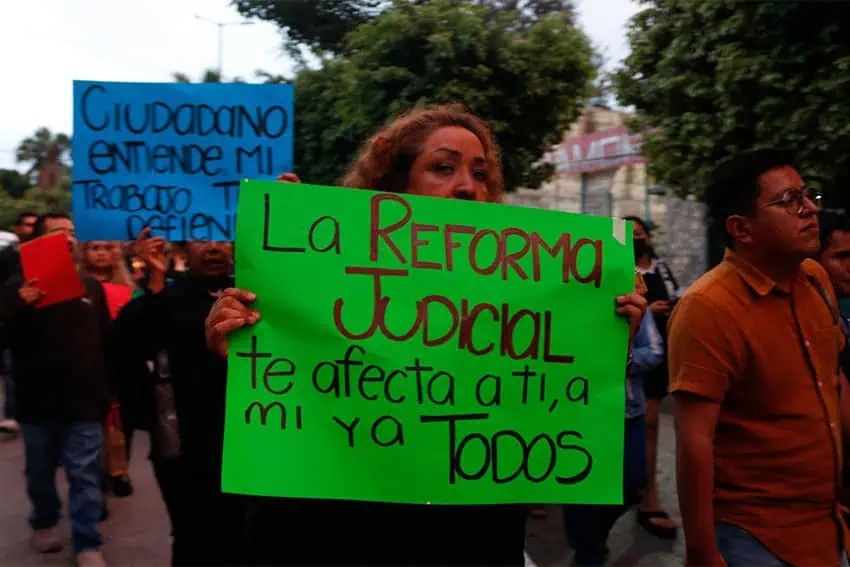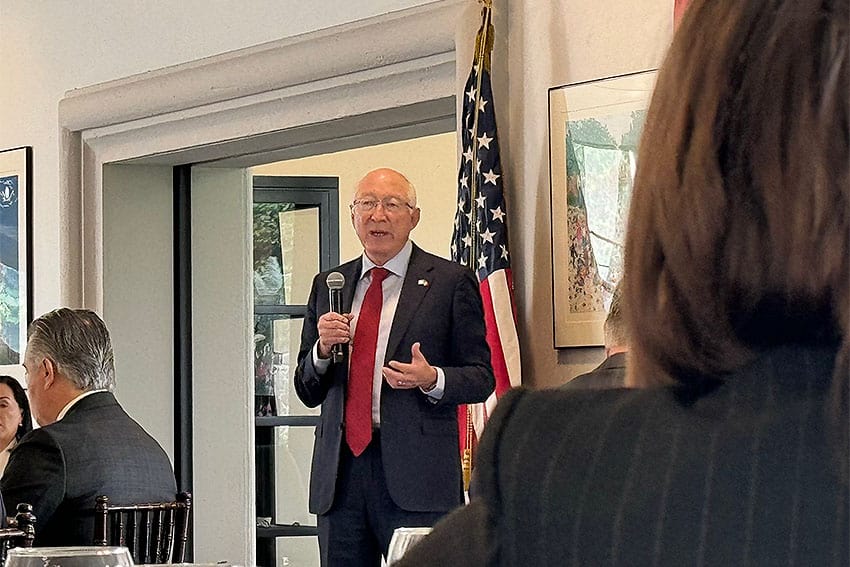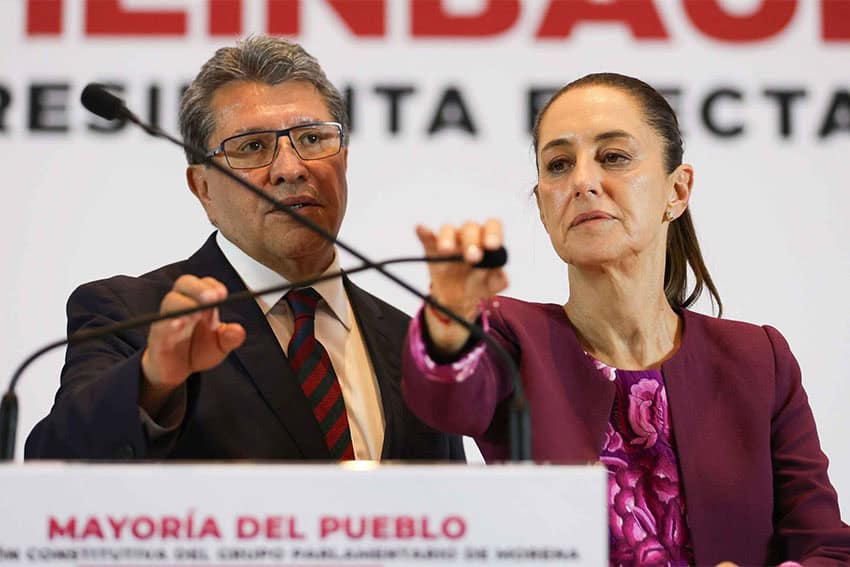Mexico’s Deputies cleared to vote on controversial judicial reform

One small step for President López Obrador’s judicial reform proposal, one sizable leap backward for the Mexican peso.
The Constitutional Points Committee of Mexico’s lower house of Congress approved a proposed judicial reform on Monday, paving the way for all 500 recently-elected deputies to vote on the constitutional bill once they assume their positions on Sept. 1.

Meanwhile, the peso — which has taken a battering since Claudia Sheinbaum and the ruling Morena party won comprehensive election victories on June 2 — depreciated close to 2% against the US dollar on Tuesday to trade at 19.78 to the greenback at 4 p.m. Mexico City time.
Gabriela Siller, director of economic analysis at Banco Base, said on X that the depreciation was due to the “enormous risk” the controversial judicial reform proposal represents.
Causing the most concern both in Mexico and abroad is the bill’s provision that would allow Mexican citizens to directly elect thousands of judges, including the nation’s 11 Supreme Court justices.
United States Ambassador to Mexico Ken Salazar asserted last week that the “popular direct election of judges is a major risk to the functioning of Mexico’s democracy.”
President Andrés Manuel López Obrador (AMLO) responded by calling his remarks “unfortunate” and “imprudent,” and putting relations with the U.S. Embassy in Mexico “on pause.”
Meanwhile, members of the Constitutional Points Committee approved a modified version of the reform bill that AMLO sent to Congress in February. Deputies with the ruling Morena party and its allies voted in favor of the proposal, outnumbering the opposition lawmakers who voted against it.
The committee made one additional modification to the proposal, adding a “jueces sin rostro,” or “faceless judges” clause, which aims to protect the identity — and therefore the safety — of judges presiding over cases involving organized crime.
The bill is expected to pass the Chamber of Deputies as Morena and its allies — the Labor Party and the Ecological Green Party of Mexico — will have a two-thirds majority when the new Congress convenes next week.
In the Senate, the Morena-led coalition will be just short of the supermajority required to pass constitutional reform proposals on its own, but finding a few extra votes to get the judicial reform proposal through Congress is considered achievable if not a fait accompli.
The likelihood that the judicial reform proposal and other controversial constitutional bills will pass Congress has generated major concern among investors — and even prompted claims that Mexico could squander its nearshoring opportunity.
Opponents of the judicial reform proposal say that the direct election of judges from candidates nominated by the sitting president, the Congress and the judiciary itself threatens the independence of Mexico’s justice system. Judicial elections, in some cases, would coincide with political elections, a situation that critics believe could lead to politicization of the judiciary.
On Tuesday, a bipartisan group of United States senators issued a statement in which they said they were “deeply concerned that the proposed judicial reforms in Mexico would undermine the independence and transparency of the country’s judiciary, jeopardizing critical economic and security interests shared by our two nations.”
If the proposal is approved, all 11 justices of the Supreme Court — which has handed down rulings against the current government’s policies and projects — could be replaced next year, potentially delivering a majority bench that is sympathetic to the agenda of incoming president Claudia Sheinbaum.
López Obrador, a frequent critic of the nation’s judges, argues that the reform is necessary to eradicate corruption within the judiciary. He would happily accept the approval of his proposal as a parting gift before he leaves office on Oct. 1 and retires to his ranch in Chiapas.
Paulina Rubio, a deputy with the National Action Party, expressed concern that the next federal government could condition the continuation of its social programs on support for judicial candidates put forward by Sheinbaum.
“I’m already imagining the servants of the nation intimidating the people [who benefit from] the social programs, [telling them] that if they don’t go out to vote for the president’s candidates, they’ll take away the social programs — that’s the problem,” Rubio said, referring to low-ranking, on-the-ground government officials who assist the delivery of multiple welfare and employment schemes that Mexico’s current government has instituted in the last six years.


The Morena Party and AMLO say such programs are bringing about Mexico’s “fourth transformation” — one that is lifting up Mexico’s most economically disadvantaged.
Sheinbaum — who is committed to continuing AMLO’s policies and building “the second story” of the so-called fourth transformation that he initiated — said last week that the process to select judicial candidates would be “very transparent” and that prospective judges would have the required experience to do the job.
“The president will no longer have a hand in appointing justices,” she said.
“… It’s a very complete process,” Sheinbaum said, referring to both candidate selection and judicial elections.
“It’s new, but it has nothing to do with this idea … that [judges] are now going to be more aligned to the president. … It’s a complete proposal that guarantees autonomy [for the judiciary],” she said.
With reports from Reforma and El Financiero
Source: Mexico News Daily

